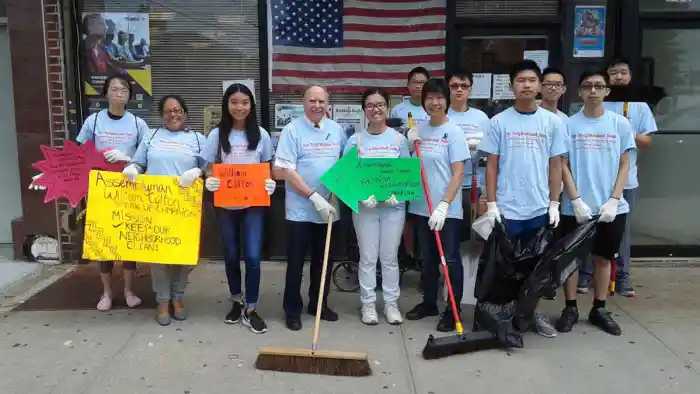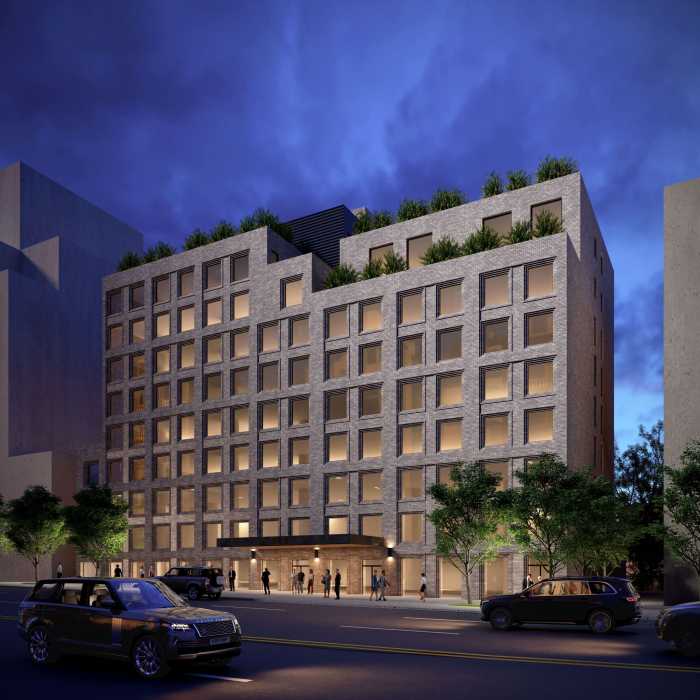Williamsburg Councilman Steve Levin dropped his opposition to a controversial waterfront project after the developer agreed to increase the number of family sized apartments — and price all of the 74 large units at below-market rates — and the project sailed through a key Council vote hours later.
The agreement came just days after Rose Plaza developer Isack Rosenberg had already agreed to set aside 30 percent of the entire 774-unit development as “affordable,” a demand made earlier in the week by Levin.
And on Wednesday morning, the Council, which typically defers to the local member on land-use issues, fell into line, with an overwhelming 18-1 vote of support in the land-use committee. Levin was with the majority.
The negotiations and committee vote capped a whirlwind week for Levin, whose opposition to the project forced the developer to significantly alter his original proposal from 20 percent below-market units, with 30 three-bedroom and zero four-bedroom apartments.
Now the project has 60 three-bedrooms and 14 four-bedrooms — larger apartments that are highly sought after by Hasidic families who live in the area near the proposed development along Kent Avenue near Division Avenue.
Rabbi David Niederman, a member of the Community Board 1 Land Use Committee, said that affordability was the most important component for a successful project.
Before the agreement with Levin, Hasidic groups were still mobilizing to thwart the rezoning despite the agreement. A group opposed to the project distributed a flier in South Williamsburg calling for a “mass protest” in front of Rosenberg’s Ross Street home, warning that “money-hungry developers are bringing in the heart of Williamsburg 800 apartments for yuppies/artists.”
At 8 pm, about 100 children and 50 adults demonstrated against the project, evidence that the project, four years in the making, has amplified deep divisions within the Hasidic community as it advanced through the city’s land-use review process over the past six months.
Community Board 1 and Borough President Markowitz previously rejected the plan — and Levin kept making demands for more affordable housing and larger units.
Rosenberg’s lawyer Howard Weiss was careful not to weigh into the political and religious ramifications of the rezoning fight, instead congratulating Levin and the parties involved for reaching an agreement before the Council vote.
“We are grateful for everyone’s effort and looking forward to Rose Plaza being developed,” said Weiss. “We have tried throughout the entire process to be responsive for this project to work for everyone.”

























